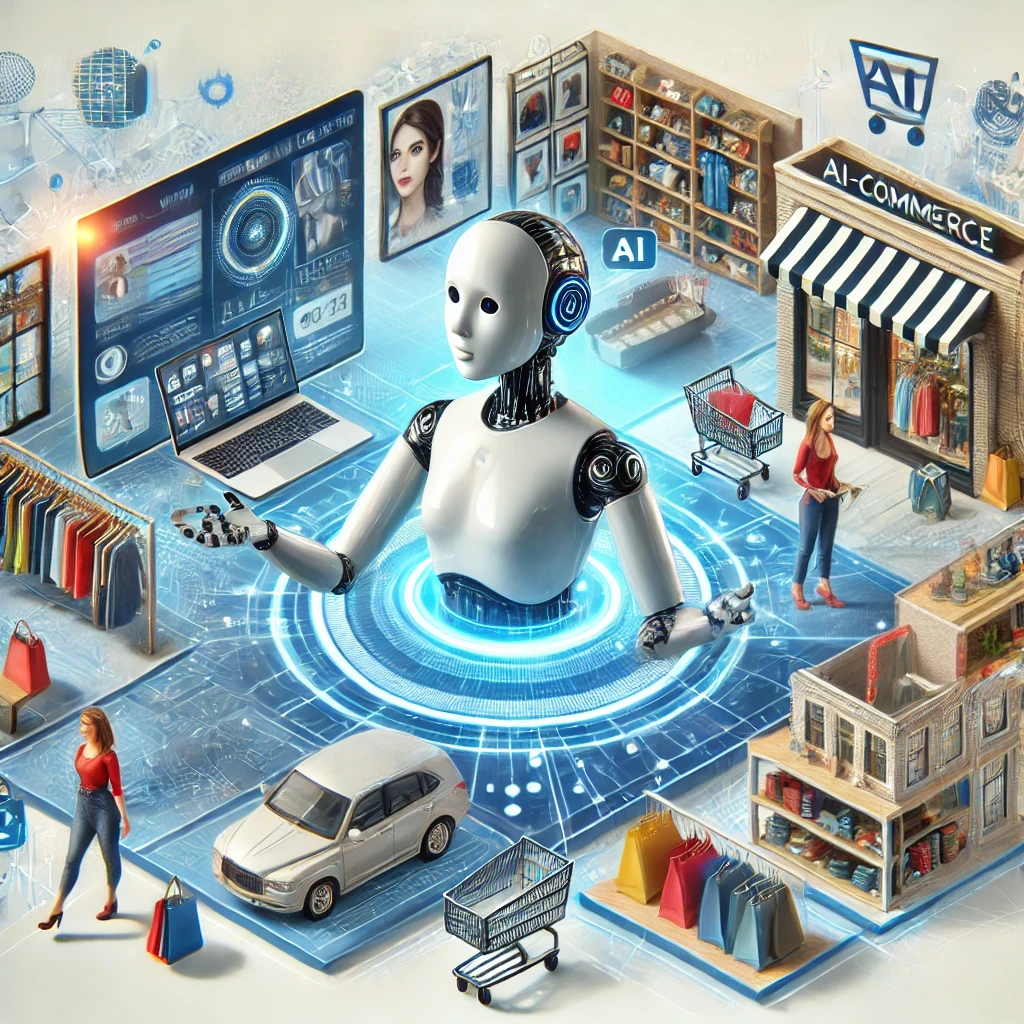As e-commerce continues to grow, businesses are increasingly turning to artificial intelligence (AI) to improve customer experiences and boost sales. Personalized shopping experiences, enabled by technologies like GPT (Generative Pre-trained Transformer) and machine learning, have become a key differentiator in the competitive online marketplace. By analyzing data on customer preferences, behavior, and purchasing history, AI can tailor product recommendations, automate customer support, and create dynamic content that resonates with individual shoppers. This article explores how personalized AI is transforming e-commerce, highlighting the specific ways in which GPT models and machine learning enhance the shopping experience and drive sales.
Understanding Personalized AI in E-Commerce
Personalized AI refers to the use of artificial intelligence algorithms that can analyze and interpret data to create unique experiences for each customer. In e-commerce, this means understanding what products a customer is interested in, what they are likely to buy, and how they prefer to interact with a brand. By utilizing machine learning algorithms, businesses can gather insights from customer data and use these insights to anticipate customer needs, offer relevant suggestions, and engage customers in meaningful ways.
Generative AI, like OpenAI’s GPT models, takes personalization a step further by generating tailored content based on individual preferences. For instance, GPT can be used to create personalized product descriptions, suggest related items, or even compose targeted marketing messages. Combined with traditional machine learning, these AI models help e-commerce platforms offer a more customized experience, making online shopping more engaging and effective.
AI-Driven Product Recommendations
One of the most common applications of AI in e-commerce is personalized product recommendations. By analyzing customer data, such as browsing history, purchase patterns, and preferences, machine learning algorithms can suggest products that are relevant to each customer. This not only enhances the shopping experience but also increases the likelihood of a purchase.
For example, Amazon’s recommendation engine uses AI to analyze millions of data points and predict which products a customer may be interested in. Similarly, GPT can be employed to generate descriptions or highlight features that resonate with the user’s interests. By providing highly relevant product suggestions, e-commerce platforms can guide customers through their journey, making it easier for them to discover products they are likely to buy.
Personalized Content and Dynamic Messaging
Personalized content is another area where AI and GPT play a significant role. GPT models can generate unique and relevant content for each customer based on their preferences. For instance, if a customer frequently shops for eco-friendly products, GPT can generate product descriptions, promotional messages, and blog content that emphasize the sustainability aspects of items in the store. This tailored content not only creates a more personalized shopping experience but also helps build a stronger connection between the customer and the brand.
Dynamic messaging, enabled by AI, allows e-commerce platforms to present customized notifications and offers in real-time. By understanding customer intent and behavior, AI can identify the best moments to deliver these messages. For example, if a customer abandons their cart, an AI-powered system can trigger a personalized message encouraging them to complete the purchase. This targeted approach helps to reduce cart abandonment rates and improve customer retention.
Automated Customer Support with GPT-Powered Chatbots
AI-driven chatbots are transforming customer support in e-commerce by providing instant and personalized assistance to shoppers. GPT-powered chatbots, in particular, are capable of understanding complex questions and delivering accurate answers that address customer needs. Unlike traditional rule-based chatbots, which rely on pre-defined scripts, GPT-powered chatbots can generate responses based on the context of the conversation, making interactions feel more natural and helpful.
For instance, if a customer is looking for information about a product’s compatibility or return policy, a GPT-powered chatbot can provide detailed, contextually relevant answers. These chatbots can also recommend products, assist with order tracking, and handle returns, enhancing the customer support experience. By automating these processes, businesses can reduce response times, improve customer satisfaction, and free up human agents to focus on more complex inquiries.
Enhanced Email Marketing with AI Personalization
Email marketing remains a powerful tool for driving sales in e-commerce, and AI is making it even more effective through personalization. Machine learning algorithms analyze customer behavior and preferences to tailor email content, timing, and frequency to each recipient. For example, AI can identify the best times to send promotional emails based on when each customer is most likely to engage.
GPT models can generate personalized email content, such as product recommendations, offers, and subject lines that resonate with the recipient. By making email marketing more relevant and engaging, AI can increase open rates, click-through rates, and conversions. Personalized emails make customers feel valued, which can lead to increased brand loyalty and higher lifetime customer value.
AI for Inventory Management and Demand Forecasting
AI and machine learning are also enhancing the backend of e-commerce through inventory management and demand forecasting. By analyzing sales data, seasonality, and market trends, AI models can predict future demand for products, allowing businesses to optimize inventory levels and reduce costs.
For example, AI can analyze historical sales data and identify patterns, such as increased demand for certain products during specific times of the year. By understanding these patterns, e-commerce platforms can ensure that popular items are always in stock, minimizing lost sales and improving the customer experience. Additionally, demand forecasting helps to reduce overstocking, which can be costly and environmentally wasteful.
Challenges and Ethical Considerations
While personalized AI offers numerous benefits for e-commerce, it also raises some ethical and technical challenges. Privacy concerns are a key consideration, as personalization relies on collecting and analyzing large amounts of customer data. E-commerce platforms must ensure that they handle this data responsibly, complying with data protection regulations such as GDPR and maintaining transparency with customers.
Additionally, there is a risk of over-personalization, where customers may feel uncomfortable if recommendations are too specific or if they sense that they are being tracked excessively. Finding the right balance between personalization and privacy is essential for building trust and maintaining customer loyalty.
Conclusion
Personalized AI is transforming the e-commerce landscape, providing customers with tailored shopping experiences that enhance engagement and drive sales. From product recommendations and dynamic content to automated customer support and demand forecasting, GPT and machine learning are empowering businesses to deliver a more relevant and enjoyable shopping experience. As AI technology continues to evolve, e-commerce platforms have an opportunity to further refine their personalization strategies, creating stronger connections with customers and staying competitive in the digital marketplace. With careful consideration of ethical concerns and a commitment to transparency, personalized AI has the potential to revolutionize the future of online shopping.



Sounds cool, but privacy concerns are HUGE. AI knows TOO much! Creepy.
Lmao you aint wrong tho 💀
the tech is a game changer! i hope companies balance personalization with keeping our data safe.
personalized recommendations are awesome and super convenient!
AI shopping! 🛒🤖 Personalized recommendations? Tempting! 👀 But data privacy worries me… 😬 Shop smart, people! 👍
ai shopping is da bomb! is really cool? what ai can me help in shoping 😎😎
phe ai recs feels too invasive.👎
ai recs r cool 😱but feel super creepy